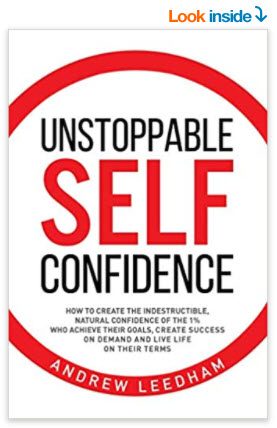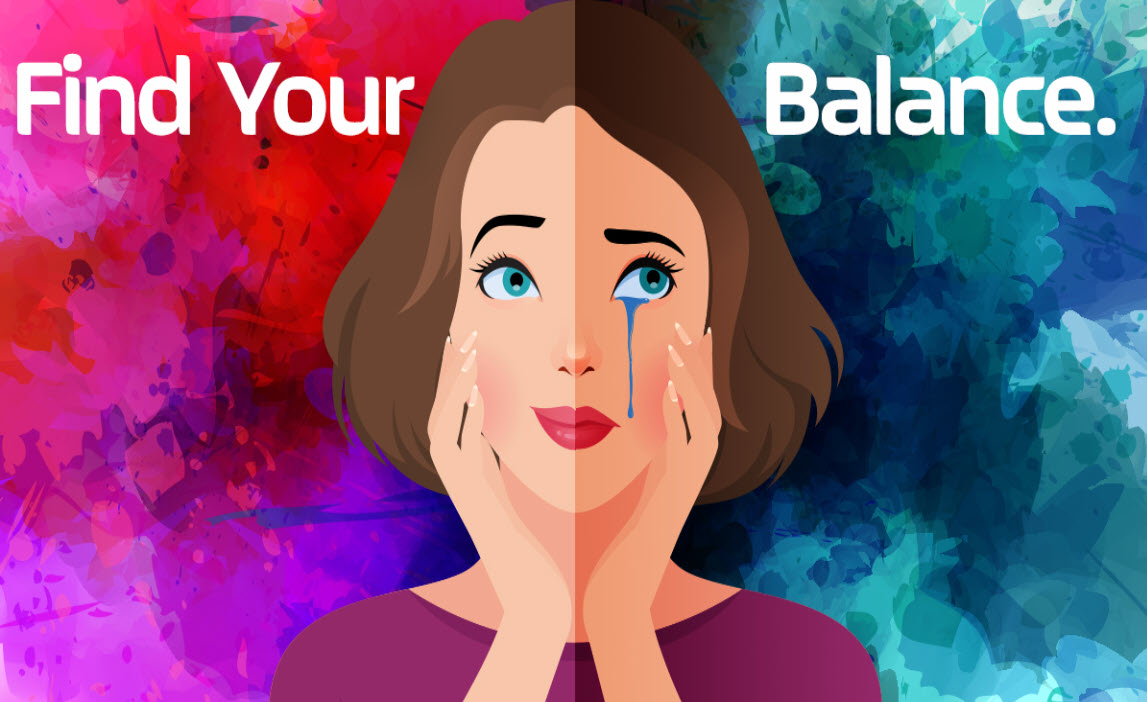Angry All the Time for No Reason? This Might Be Why
 anger
anger
Maybe you feel angry regularly. You’re irritable, short-tempered and grouchy. Maybe you snap (or want to snap) at everyone around you — because your anger feels like a tsunami. It’s bound to crash into something. Yet you don’t know why you feel this way. You have no clue why you’re so on edge.
Where does this unexplained anger come from? What does it mean?
There may be many different causes. One explanation is that you have weak boundaries. You say yes when you really want to say no. You do things for others that you don’t feel comfortable doing. You’re constantly drained and depleted.
But you might not make the connection, said Julie de Azevedo Hanks, Ph.D, LCSW, owner of Wasatch Family Therapy and author of The Assertiveness Guide for Women: How to Communicate Your Needs, Set Healthy Boundaries, and Transform Your Relationships. “[You] may just think that people take advantage of [you] and not realize that [you] have a part in that dynamic.”
Or maybe you aren’t getting enough sleep or you’re drowning in to-do lists. Which makes it “more difficult to access [your] emotional coping skills,” Hanks said.
Maybe it’s depression. “There seems to be a misunderstanding that depression is crying all of the time and not getting out of bed.” However, increased irritability is a common symptom, Hanks said.
How to Stop Being Negative, Angry, and Mean
By Richard Banks
Maybe it’s anxiety. “Individuals with high anxiety often feel on the verge of overwhelmed because they have to work so hard to manage their own internal emotional state.” So when a challenging situation arises, you might be maxed out, which manifests as anger or a short fuse, she said.
https://yourinspirationnation.com/success-2/
Psychotherapist Rebecca Wong, LCSW, sees many individuals and couples who are angry because of relational issues. That is, they’re angry with their spouse, kids, parents, friends or coworkers. For instance, maybe they’re angry because they feel invisible or like they don’t matter, said Wong, founder of connectfulness counseling.
Maybe you expected your best friend to support you, but they didn’t. Maybe you expected your spouse to help out more around the house. “That’s where, if those buttons are pushed enough, often enough, you could flip into a state of anger without even knowing why.”
Anger also “stems from wanting to control what is outside of us,” said Michelle Farris, LMFT, a psychotherapist in San Jose, Calif., who loves helping people learn how to manage anger and build healthy relationships. Years ago, Farris worked with a young woman who realized that focusing on what others did triggered her frustration.
Sometimes, you might not feel angry at all. Rather, your actions might be passive-aggressive, and you might feel resentful. Many of Hanks’s clients who have “anger issues” actually don’t let themselves express their anger.
For instance, Hanks worked with Cindy (not her real name), a woman in her 30s who seemed cheerful and positive—and exhausted. Cindy was an excellent caretaker and had great empathy for everyone (but herself). She has two kids with disabilities. Her husband rarely helped. He either disconnected from the kids or exploded at them. Cindy worked very hard to keep everyone happy.
Once she connected to her thoughts and feelings, she realized that she felt angry about doing most of the parenting and letting her husband off the hook for not interacting with their kids. She also realized that beneath her anger was loneliness. She didn’t feel supported.
Maybe like Cindy, you’re also not in tune with your feelings. “Most of us didn’t learn how to navigate our emotions,” said Farris, also author of the e-book The 4 Essential Steps To Building Your Confidence (which you can download here for free).
Unstoppable Self Confidence
By Andrew Leedham
“Instead, society encourages us to avoid conflict, be nice and say yes when we mean no.” We struggle with anger the most because it’s still seen as a taboo emotion, she said.
We fear that by expressing our anger, we’ll hurt someone’s feelings, possibly lose control or risk ruining the relationship, Farris said. However, she believes that when we navigate anger effectively, it’s actually a gift. “It teaches us when something is wrong, or when to take appropriate action—or do nothing at all.”
– Receive More Waves of iNspiration. It’s easy to sign up, click Here to receive your monthly iNspiration Nation Newsletter sent straight to your inbox. Stay current with some of the industry’s most influential writers, bloggers, authors, and publishers.
For instance, Cindy applied her anger to making specific requests to her husband, so she’d have more support and feel less alone.
Farris’s client redirected her energy to herself, and learned to manage her own thoughts. “She learned to express her feelings without blame and take a break before exploding.”
Farris shared these suggestions for effectively managing your anger:
Become aware of your early warning signs of anger. (Which may be different for everyone.)
Express your emotions without blaming the other person.
Plan ahead to handle difficult situations.
Take deep breaths to stay in the moment.
Notice negative thoughts that trigger your irritation.
Ask for help if you’re struggling.
Take a break when a situation starts to escalate. Let the person know that you’d like to continue the conversation once you (or both of you) have cooled off.
Relax at Night with
Deluxe Ultrasonic Cool Mist Aromatherapy Diffuser
“Anger is often a secondary emotion,” Hanks said. Beneath the frustration and irritability is usually a vulnerable emotion, such as loneliness (as in Cindy’s case), sadness or fear. And it’s usually harder to access and express, she said. With her clients Hanks uses the metaphor that emotions are an ocean. She asks them to draw the surface of the ocean, and write or draw what they’re feeling. Then she asks them to brainstorm the emotions that might be swimming below the surface.
Remember that angry feelings are not the same as violent behavior, Hanks said. We tend to use the terms interchangeably, which has created the misconception that anger is “bad.”
Again, anger is a valuable and vital emotion. “Acknowledging feelings of anger and using this awareness to understand the underlying vulnerable emotions is key to emotional health.”
Source: psychcentral.com
Blog Companion Book
How to Stop Being Negative,
Angry, and Mean
By Richard Banks
What makes us different from other inspirational/motivational online content providers is our monthly
Wave of iNspiration Showcase!
Each month the Showcase features a new Blog, Video, Book, and Quote, highlighting an inspirational, motivational, and educational topic from the industry’s most influential writers, bloggers, authors, and publishers.
 ↓
↓
Trending throughout iNation…
- 5 Ways to Stop Your To-Do List Anxiety And Actually Feel in Control
- The heart-warming story about Hachiko – A Dog who taught us about loyalty and love!
- The Myth Behind Why Being Busy Makes You Feel Important by Heather Picard
- How to Be an “Imperfectionist” By Stephen Guise
- Leadership Excellence – A Model for Sustained Success By Dr. Philip A. Iannuzzi, Jr. (Retired Colonel, U.S. Air Force)
- We Have A Manchild Problem, And It’s Scaring Everyone
- 7 Reasons You Are Unsuccessful. It Isn’t Because You’re Lazy. It’s This.
- If Technology Connects People Why Are People Lonelier Than Ever
- We’re all beginners in life who’ve been given a lot of advice…just be sure not to ignore these 7 powerful pieces!
- 7 Ways to Stop Making Excuses By Vera Sweeney







 ↓
↓

